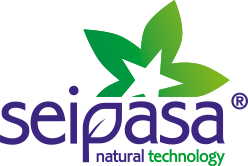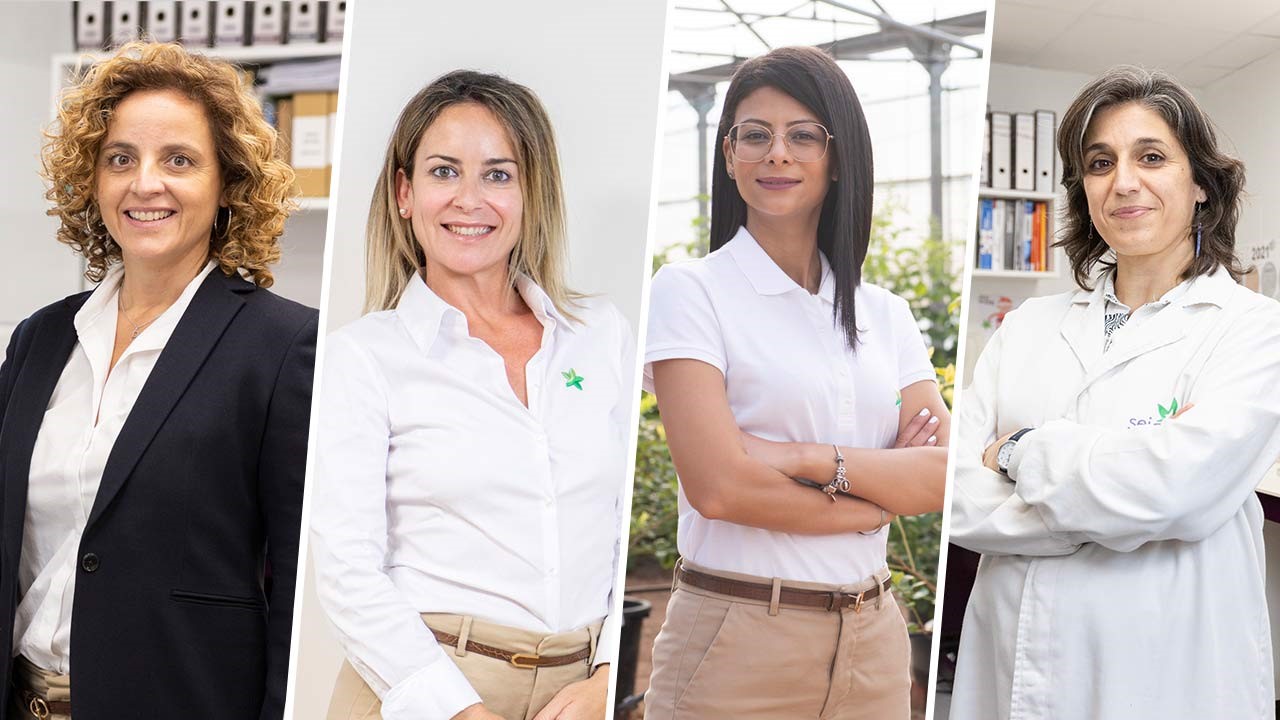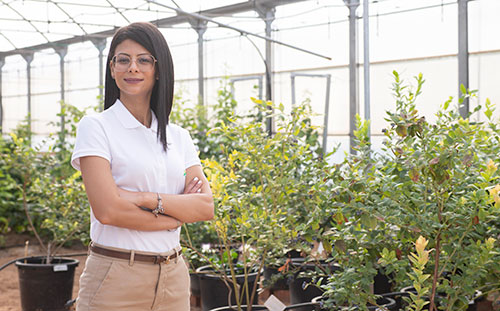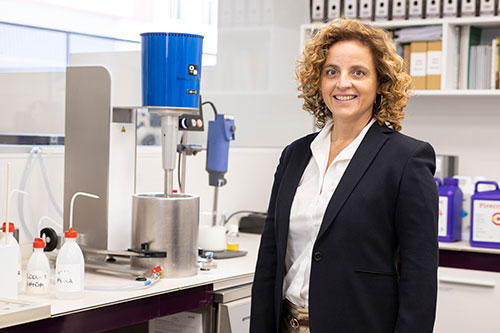We are completing this series of interviews to mark the International Day of Women and Girls in Science, with the second part of this feature article in which we hear about the careers of 4 women members of our team. From profiles as varied as marketing, microbiology, quality processes and technical trials, the 4 protagonists of this report recall their beginnings, their career and, above all, the motivations that have steered their professional life.
Inma del Castillo has a BSc in Biology and a PhD in Genetic and Microbial Technology. She works as head of the Microbiology Department at Seipasa.
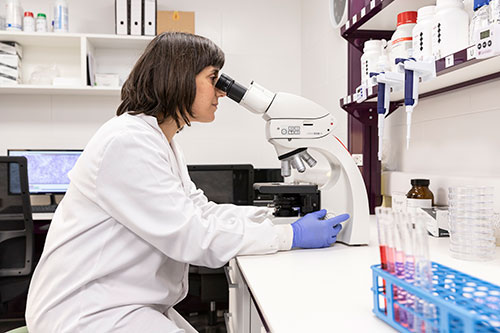 1. Why is it important to celebrate the International Day of Women and Girls in Science?
1. Why is it important to celebrate the International Day of Women and Girls in Science?
I feel it is important as it is a means of giving visibility to a reality that provides references for girls today. I consider that knowing about people in which you can see yourself reflected or can identify with is very important to broaden expectations and horizons with a view to possible professions and options in life. I mean, knowing that there are other options beyond the role traditionally assigned to women in society.
2. What has science, in this case microbiology, brought to your life?
Firstly, it has provided me with a way of earning a living in a profession that I like, that I find stimulating, that makes me think and that enables me to study and learn. It has also taught me to develop critical thinking; it has enabled me to meet interesting people who have opened up my horizons and provided very interesting experiences, both in the strictly professional and also at a personal, cultural and human level.
3. Which female scientist would you dedicate a film to?
I had the opportunity to work with Mariangela Hungría, a Brazilian scientist who is a world reference in soil microbiology and I learnt a tremendous amount from her. She was a great inspiration for me. As well as an outstanding professional in her field and well known in her country, she is a great person who generates a very warm atmosphere in the laboratory among the people in her group.
As I gradually got to know Mariangela, I also discovered very interesting things about her life. For example, that she has a daughter with developmental problems, and that in spite of being fully dedicated to science, she has always been equally committed in her personal life.
This is something that I particularly like to see in scientists, because the common idea is that scientists have to be 100% devoted to work, and that is not fair. It is not fair to ask someone to set aside their personal life to devote themselves completely to their work, however exciting it is. In this sense, I love the balance that Mariangela has been able to find.
Vanessa Garrido is an agronomist. She is head of marketing for the Spanish market at Seipasa.
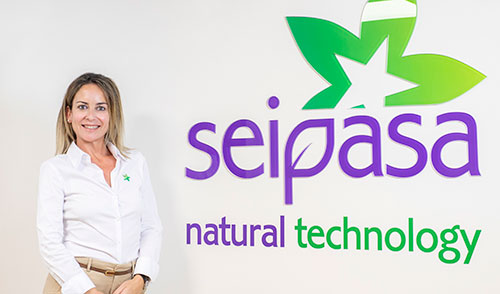
1. What motivated you to become an agronomist?
I always thought that with this profession, for which the subjects you study combine all those I liked the most (mathematics, biology, physics and chemistry), I could use the resources provided in nature with maximum respect and care for the environment (management of soil, water resources, climate... ). And all with the aim of providing healthy, safe food for consumers. My idea was perhaps to work on designing fruit and veg warehouses, farms, irrigation systems, agricultural machinery, or to work as a product developer, etc., and of course, I would also invent new equipment, adapt technology to implement improvements in plants, animals, greenhouses, farms ... help farmers, guarantee people's health through quality controls, waste treatment or the development of biodegradable products or biofuels.
All of this was clearly influenced by my maternal grandfather who would often quote a phrase by the playwright and poet Lope de Vega and say to me, "my sweet, the king himself would have no food if it were not for the farmers tilling the fields". This has really stuck with me from being a little girl and has meant that one of the things I am most passionate about is being able to support farmers by helping them to obtain more productive crops.
2. What is the most exciting part of your work?
I love being an all-rounder. I love being out in the fields, helping farmers to improve the profitability of their harvests, but I also love combining this with my office work. To be successful in our work we have to be detail-oriented, analytical, decisive, curious and, above all, know how to work in a team and share our experiences.
3. How would you encourage your past self to enter the world of science and research?
I would encourage all girls to approach their studies and indeed their life as a challenge; a challenge to be addressed with dedication, hard work, conscientiousness and above all, humility, and perseverance. Rewards are not gained without any effort and both women and men, as professionals and as people, can resolve everything we face and help others, with the support of those in our profession and our work colleagues.
Amira Jouini has a BSc in Agronomy and a PhD in Organic Agriculture. She works as an efficacy trial expert at Seipasa.
1. What can you tell us about your professional career before joining Seipasa?
I studied a higher degree in agronomy in Tunisia, after which I did a master's agree in organic agriculture in Bari, Italy. Recently, I have obtained a PhD with honours with a thesis on the use of essential oils as bioherbicides through a joint Third Cycle programme between the University of Palermo in Italy and the Universitat Politécnica de Valencia. I now form part of Seipasa's technical department where I work as a Trial Expert, which means that I plan efficacy trials to obtain product registrations.
2. What has your work as a researcher taught you?
My career in research has taught me to have a lot of patience and to apply a culture of hard work. It has helped me to focus on my objectives with a long-term vision. In research there are times that you start something and have to wait a long time for the results. All of this has helped me to adopt a long-term approach.
Also, I have managed to build up my analytical thinking and critical reasoning and I have developed an approach oriented towards creativity. It has also awakened my curiosity for knowledge and learning. It has helped me to be a more disciplined person, with more initiative and greater capacity to search for solutions
3. What do you think you have contributed to the world of science and research?
I have helped by providing knowledge and new solutions for the world of agriculture through my scientific articles. My articles explain how chemical herbicides can be replaced by natural secondary metabolites produced by plants and how, at the same time they can stimulate the microorganisms in the soil.
This contribution can help farmers, for example, to find solutions to the problem of weeds. It can also help them to care for the environmental, which is precisely one of Seipasa's key values.
With regards to research, the results of the articles from my thesis could help other researchers by providing a set of data they can use to broaden their work. I also consider that I have contributed to normalising the presence of women in the world of research.
Puig Mora has a BSc in chemistry and a PhD in organic and pharmaceutical chemistry. She is Seipasa’s Quality and Environment Manager.
1. What spurred you to delve into the world of chemistry?
When I was young I liked to play at mixing things together. My sister and I would spend hours with the Quimicef chemistry set for children, making mixtures in different colours. Years later, at secondary school I had a superb chemistry teacher. This, along with the wide variety of job opportunities available with a degree in chemistry, was what drove me to study this subject.
2. Why did you decide to embark upon a career in research?
During the fourth year of my degree course I had to work on my dissertation at a laboratory. It was then that I was able to apply the mostly theoretical knowledge I had acquired during my time at university, and I found that really enjoyed doing chemistry, working on the highly experimental projects at the laboratory.
I had the chance to work at two different laboratories, one devoted to organic chemistry and the other biochemistry, which were also the subjects I liked the most. Before completing my dissertation they asked me if I would like to do my doctoral thesis in the same department where I was working, and this is how my career in research started.
3. What is your research thesis about? What conclusions have you contributed to science?
The laboratory where I did my doctoral thesis is the peptides and proteins laboratory of the University of Valencia. This laboratory carries out in vitro and in vivo trials to identify and characterise the molecules that inhibit various diseases such as Alzheimer, cancer or sepsis. My doctoral thesis and its conclusions were about the identification and characterisation of molecules with an inhibiting action on lipopolysaccharides (LPS) or endotoxins, which are found in the cell membrane of gram-negative bacteria, and which are the main triggers of sepsis. Sepsis is the body's extreme response to an infection. If it is not controlled it can be fatal as it causes tissue damage and multiple organ failure leading possibly to death.
